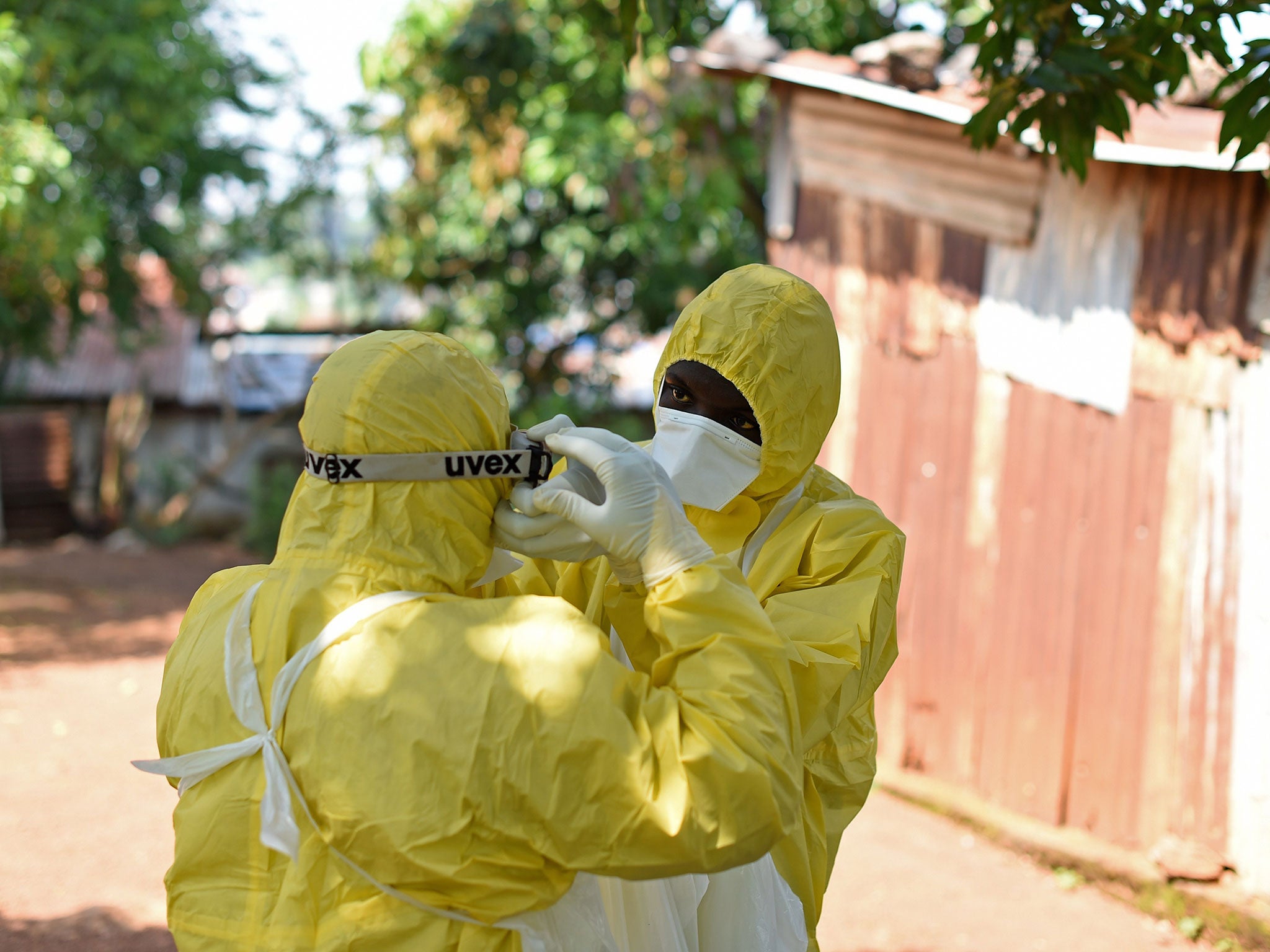Ebola virus: Clinical trials of three new treatments for disease to start in West Africa
Several hundred patients expected to take part in three separate trials

Your support helps us to tell the story
From reproductive rights to climate change to Big Tech, The Independent is on the ground when the story is developing. Whether it's investigating the financials of Elon Musk's pro-Trump PAC or producing our latest documentary, 'The A Word', which shines a light on the American women fighting for reproductive rights, we know how important it is to parse out the facts from the messaging.
At such a critical moment in US history, we need reporters on the ground. Your donation allows us to keep sending journalists to speak to both sides of the story.
The Independent is trusted by Americans across the entire political spectrum. And unlike many other quality news outlets, we choose not to lock Americans out of our reporting and analysis with paywalls. We believe quality journalism should be available to everyone, paid for by those who can afford it.
Your support makes all the difference.Clinical trials of three new Ebola treatments are due to start next month in West Africa, Médecins Sans Frontières has announced.
Up to several hundred patients are expected to take part in three separate trials in Guinea and Liberia, the medical charity has said.
The studies, which will involve only Ebola patients rather than placebo groups, will see researchers monitor survival rates and other effects.
The trials however can be stopped early if clear benefits or harm is seen. Initial results could be available by February, the medical charity has said.
Some 5,000 people have been killed in the West Africa Ebola epidemic, with more than 13,000 infected, according to the World Health Organisation.
The trials, which hope to quickly find an effective treatment against the disease, will test the drugs brincidofovir, from the US firm Chimerix, and favipiravir, from Japan's Fujifilm.
The third trial will see how well blood plasma taken from Ebola survivors works in curing those infected.
Researchers have said it may be possible to add new experimental drugs in coming months.
Dr Annick Antierens, who coordinates the investigational partnerships for MSF, said the cooperation involved in conducting the trials was unprecedented and "represents hope for patients to finally get a real treatment".
The trials will each by led by a different team, with the University of Oxford heading up the trial in Liberia while the French National Institute of Health and Medical Research and the Antwerp Institute of Tropical Medicine each leading one of the two others in Guinea.
The WHO and health authorities of countries affected by the epidemic are also taking part, MSF said.
The charity said the trials had been designed to ensure disruption to patients is minimal and that internationally-accepted ethical standards are respected with the aim that "sound scientific data will be produced and shared for public good".
The charity has also urged drugmakers to scale up production now, to try to ensure there is no gap between the end of the trials and any large-scale introduction of the medicines if they are found to be safe and effective.
"We need to keep in mind that there is no guarantee that these therapies will be the miracle cure," Dr Antierens said. "But we need to do all we can to try the products available today to increase the chances of finding an effective treatment."
Professor Peter Horby, the Chief Investigator of the ISARIC-led trial, said: "Conducting clinical trials of investigational drugs in the midst of a humanitarian crisis is a new experience for all of us, but we are determined not to fail the people of West Africa.
"It has been a privilege to witness the extraordinary willingness of all the partners in this initiative to step outside their comfort zones in order to fast track these critically important trials."
Additional reporting by Reuters
Join our commenting forum
Join thought-provoking conversations, follow other Independent readers and see their replies
153Comments